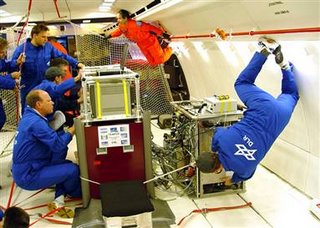It looks as if the future of humanity may lie in the hands of America and China. Not only does it seem that Russia is unable to afford a lunar trip, but now they may not have the resources to greatly assist NASA.
(RIA Novosti) This country plans to continue to upgrade its aging launch vehicles, service the International Space Station (ISS) and develop new spacecraft, including satellites that can operate for a decade rather than just 12 months. This is why Russia needs a powerful, multi-purpose and cost-effective spacecraft industry, something that seems to be lacking today. [...]
The Russian space industry will eventually be reorganized along civilian lines, but who is going to work there? The problem is that its 250,000 employees have an average age of 46. In effect, Russian space companies are getting older and more obsolete in every respect, including their human resources.
Although the American space industry is facing a similar problem regarding rocket scientists, it seems as if Russia currently has little to offer NASA as far as support goes.
It makes one wonder if all those press releases were merely wishful thinking on their part.






![ColonyWorlds[at]Gmail[dot]com](http://img.photobucket.com/albums/v438/hiddennook/ColonyWorlds.png)






